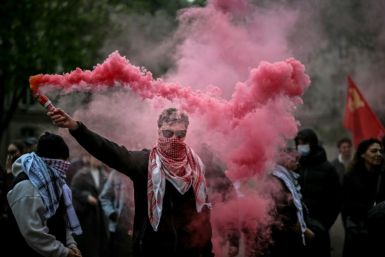Johnson & Johnson Settles Illegal Drug Marketing Case for $2.2 Billion
Johnson & Johnson agreed to pay the sum of $2.2 billion as settlement for illegal marketing of antipsychotic Risperdal, illegal promotion of schizophrenia agent, Invega, and the heart-failure drug Natrecor.
Risperdal, when used by elderly challenged with dementia, poses life-threatening effect such as aggression and anxiety. This drug also has properties causing breast enlargement when taken by male patients. Among children and disabled patients, J&J claimed that Risperdal can treat behavioural problems, but, this has yet to be proven.
During an announcement made Monday, the settlement includes a criminal fine of $334 million and forfeiture of $66 million. Johnson & Johnson had also agreed to plead guilty to the illegal marketing of the aforementioned drugs - a plea that cancels Johnson & Johnson's authorisation to sell products to Medicare and other government health programs.
Actually, it was J&J's subsidiary Janssen Pharmaceuticals Inc. which illegally promoted Risperdal despite its unapproved uses. Sales representatives from Janssen's had "aggressively" marketed Risperdal to doctors and sold the drug to nursing homes operators through its "Eldercare sales force" programme.
According to a report from Reuters, the company also provided incentives for off-label promotion and based sales representatives' bonuses on total sales, not just sales for FDA-approved uses, as stated by the Department of Justice.
The U.S. Food and Drug Administration said that inasmuch as it allows doctors to prescribe drugs for unapproved or off-label use, pharmaceutical companies are only allowed to market FDA-approved uses. FDA said it had previously repeatedly called for Janssen about its activity involving "misleading marketing messages" but to no avail. FDA was compelled to lodge a criminal complaint, hence, the long-running case against J&J.
"Our investigators devoted considerable time and resources to this case, to help ensure that pharmaceutical companies do not mislead healthcare providers and the general public," John Roth, director of the FDA's Office of Criminal Investigations, wrote in a statement.
As for marketing Natrecor, it was Scios Inc, another J&J's subsidiary, which pleaded guilty for off-label marketing and uses not covered by federal healthcare programmes.
In lieu of the settlement, J&J also agreed to comply and submit to five years of monitoring by the Department of Health and Human Services' Office of the Inspector General.
According to U.S. Attorney General Eric Holder, J&J "displayed a reckless indifference to the safety of the American people. And it constitutes a clear abuse of the public trust, showing a blatant disregard for systems and laws designed to protect public health."
However, despite agreeing to the $2.2 billion settlement, J&J said that the settlement do not mean that the company is guilty of wrongdoing and liability.
In a statement addressed to J&J employees obtained by The Wall Street Journal, J&J general counsel Michael Ullmann wrote:
"We do not agree with all of the government's allegations and strongly believe some of them are not supported by the facts. The company settled because it resolves complex and lengthy legal matters, allowing us to continue focusing our full attention on delivering innovative health-care solutions for patients and their families."






